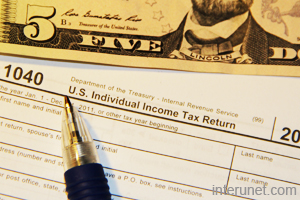
How to pay tax due if you do not have money
Sometimes instead of having a refund taxpayers get a tax due. They need to repay the amount by the end of a tax season which is usually April 15th. If you are planning to apply for a 6 months extension, it is still not release you from paying your tax due on timely basis. However, what to do in case you don’t have money to pay that on time? First of all it is, of course, better not to let this situation happen in a first place by planning ahead and making some estimated tax payments. In case you already face a pretty much big tax amount due and do not have a sufficient fund on your bank account to cover it entirely or some portion of that,
- you need to still file your tax return timely in order to avoid late filing penalties and
- pay as much as you can before the due date April 15th in order to avoid or at least reduce the amount of penalties and interest charges.
What will happen if tax won’t be paid by the due date
Taxpayers who fail to pay their tax dues on time will face penalties and interest charges. Those charges won’t stop until you fully repay your debt. Therefore, it is important to pay as much as possible of your tax due before the end of the tax season and then pay as fast as you can to fully cover your liability. If a taxpayer cannot pay all the tax due by April 15th, he needs to take a loan from the outside source or request an installment agreement from the IRS.
How to request the installment agreement
Taxpayers may submit the form 9465, Installment Agreement Request to ask the IRS to permit them to make equal monthly payments until the amount owed will be paid off. In order to have a better chance for approval the amount owed must not exceed $10,000 and the individual must not to request installment agreements in the past 5 years.
When should you file your taxes
Some qualified individuals may not file their taxes if they don’t have any tax dues, do not expect to receive refunds, or their self-employment income is less than $400 for the past tax year. In other words, if your gross income is less than sum of standard deductions (additional standard deductions included if applicable) and exemptions, you usually do not need to file your tax return for the year. However, in some cases even if you do not have to file, you might still want to do so because of getting some refundable credits. If you are not sure you can ask a tax professional an advice or contact directly the IRS. Many people avoid to do it for some reason, but it is all the time better to ask than to make a mistake and do not file a tax return just because you wrongfully think that since I don’t owe anything I don’t have to file.
